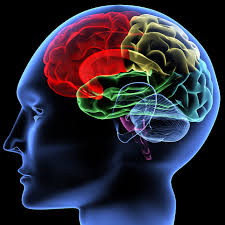Trigeminal Neuralgia Treatment for Patients in Atlanta, GA, and the Southeastern U.S.
 Trigeminal neuralgia is a chronic, neuropathic pain disorder that affects the trigeminal nerve in the face. It is widely considered one of the most complex and painful conditions known to modern medicine, and treatment is typically necessary to help patients manage the related discomfort. The Brain Expert, Dr. Jim Robinson, M.D., has been treating patients with trigeminal neuralgia and other neurological conditions since 1996, using his unparalleled experience and compassion to help patients from Atlanta, Georgia, and the surrounding states to reclaim their lives from chronic pain.
Trigeminal neuralgia is a chronic, neuropathic pain disorder that affects the trigeminal nerve in the face. It is widely considered one of the most complex and painful conditions known to modern medicine, and treatment is typically necessary to help patients manage the related discomfort. The Brain Expert, Dr. Jim Robinson, M.D., has been treating patients with trigeminal neuralgia and other neurological conditions since 1996, using his unparalleled experience and compassion to help patients from Atlanta, Georgia, and the surrounding states to reclaim their lives from chronic pain.
The trigeminal nerve carries sensory information from the brain to the face, scalp, sinuses, nasal cavity, and mouth. It also controls certain motor functions, such as biting and chewing. When the trigeminal nerve is compressed at the point where it meets the brain stem by a blood vessel, it can lead to intense pain that radiates along the nerve path. Trigeminal neuralgia pain can be triggered or intensified by certain motions or activities involving the face, such as shaving, eating, or talking. Some patients with the condition also experience a constant level of dull, aching pain throughout the head and face. The pain is usually described by patients as an electrical jolting or lightning-like pain, but can also be sharp. It tends to be short, but attacks can cluster together. Some patients with multiple sclerosis can also develop trigeminal neuralgia from their MS rather than from a vessel compressing the nerve.
Because trigeminal neuralgia can complicate routine activities of daily living, many people with the condition face emotional, social, and societal challenges. No physician understands these challenges quite as well as Dr. Robinson, whose approach to trigeminal neuralgia treatment emphasizes:
- Leading-edge technologies that help make brain surgery the safest and most effective it has ever been
- Communication with the other members of a patient’s treatment team, such as a radiation oncologist, medical oncologist, and/or supportive care provider
- Patience, compassion, and hope when non-surgical treatment options have not proven successful
Dr. Robinson offers a comprehensive range of surgical treatments, including microvascular decompressions and Gamma Knife® radiosurgery. The Brain Expert has performed more than 600 complex procedures, and is proud to see the vast majority of his patients being cured of their pain.
Microvascular decompression is the best option for patients with typical trigeminal neuralgia who have not obtained the desired results from treatment with medications. About 95 percent of cases see excellent results, with most patients experiencing complete relief of pain and the ability to get off their medicines. The risk of recurrence after microvascular decompression is low. The surgery is performed through a small incision behind the ear, and lasts for about 2 hours. The nerve and brain stem entry area are visualized under a high power operating microscope. Dr. Robinson expertly and gently relocates the blood vessel causing the pain and places padding between the vessel and nerve to prevent it from getting back into the problem area. A similar operation is done to relieve uncontrollable spasms in the facial muscles (hemifacial spasm) and for glossopharyngeal neuralgia, which causes severe pain deep in the ear and back of the throat – it is just different nerves that are involved by a compressing blood vessel. This surgery is performed with a two-night hospital stay and rapid return to normal function, with most patients up, walking, and eating regular food the day after the procedure. These are highly routine cases for Dr. Robinson, who cares for many patients with these conditions, and his outcomes are exceptionally good when compared to the national averages.
Gamma Knife radiosurgery and other, different surgical procedures during which a needle is introduced into the trigeminal nerve (rhizotomy) are aimed at reducing the transmission of pain impulses in the trigemnial nerve. These can be highly effective in the right circumstance, such as when a patient is not a good candidate for microvascular decompression, but they do not have as high of a cure rate for the condition as microvascular decompression and are also not as likely to effect a permanent cure.
For more information about trigeminal neuralgia treatment, or to discuss your options with Dr. Jim Robinson, contact Brain Expert, PC, at 404.254.3160. Proudly serving Atlanta, GA, and all of the nearby areas.